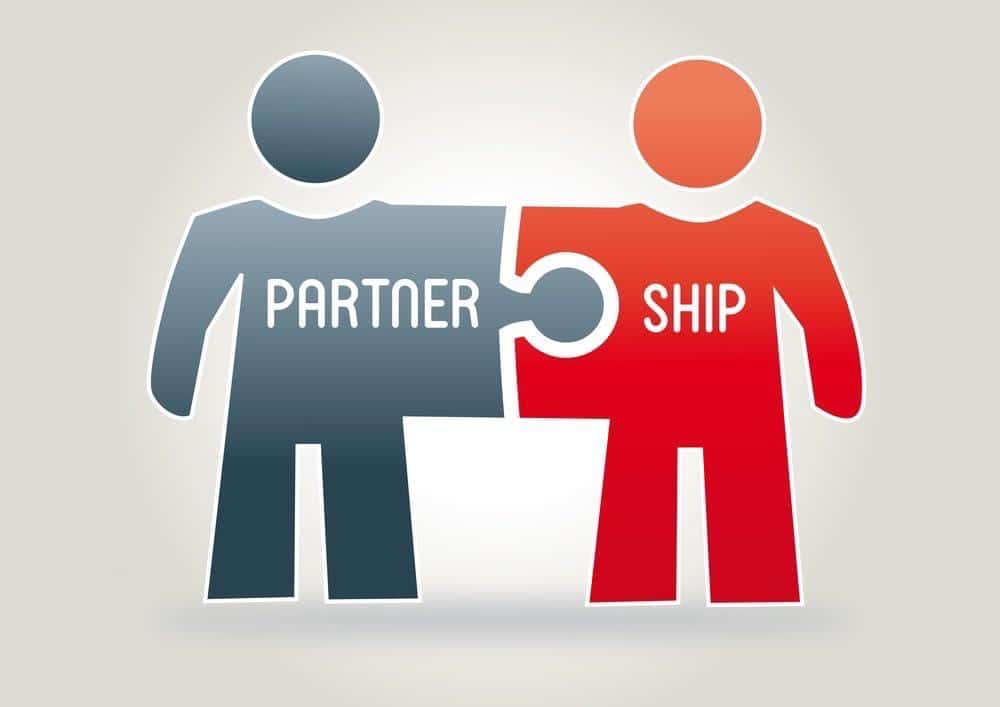
In the early 1990s, a study was conducted by Ken Preiss, Steve Goldman, and Dr. Roger Nagle from Lehigh University. It was conducted to determine what high-performing companies were doing that enabled them to be leaders in their industries. They found that there were four characteristics which they termed Agility. One of the four features was that each company cooperated to enhance competitiveness. They did this by working closely with other businesses to provide a full complement of products and services. They had established relationships, an important company value.
Companies act as one entity through relationship-building. This is an important company value.
One of my very successful clients is a great practitioner of relationship building. I and my former colleagues at espi have completed many important projects with this client over a 25-year relationship.
First, we helped them to select a new information system which used to run their business. This was a big, first time project for any company. Right from our start with them, they showed great trust in us. Our relationship with them continued to grow and prosper.
Our second endeavor was to help them plan and move their operation from a small facility to a new, larger and centrally located one. We developed the facility layout and organized the move of their equipment and materials to the new plant. The plan and resultant move worked well. Within 24 hours, they had their operations up and running. They were manufacturing product to their customers in a very short space of time.
This further cemented our relationship with them. This is important as it is an important company value.
They knew that we were operating efficiently and effectively on their behalf.
As they continued to grow, they outgrew their information system and they called us again to work with them. We were intimately involved in purchasing and installing the new system. The work went well with a few issues. They experienced no problems in making or shipping product to their customers. This was another win for our relationship.
Then, the owners decided that there was another opportunity for them. By warehousing their clients’ products, taking orders and shipping the goods for them, they would then be a one-stop-shop. They would provide a complete service at an affordable price. We conducted studies for them that laid out warehousing space. It met the startup of this operation and allowed for future growth. We identified the racking and other equipment needed for the operation.
The racking was secured and put in place. We then established where to store the client’s materials. This allowed for the most efficient picking, collating and shipping of the items. Since this was a new operation for them, they were unsure of costs and what to charge for this service. We then conducted a comprehensive study. It enabled them to see what other pick and pack organizations were charging. They were then able to cost their operation and charge clients a fair and competitive price for this service.
The company successfully started this operation adding a new service dimension to their business.
Despite their growth they have not changed their commitment to partnering with their clients.
They continue to bring their products to market quickly and hassle free. They have established great relationships with many of their clients. This is exactly as the top companies Nagle, Preiss and Goldman had reported on. They also established a close working relationship with me and my company. They shared key, important and confidential information with us. And, they trusted us to make important changes to their processes and operations. They are truly demonstrating relationships as an important company value.
You cannot buy that kind of relationship. It is earned by working closely together and earning each other’s trust and respect. Successful companies work hard to establish these relationships. And, as our “Agility” discoverers found, this is one of the keys to success.

Many companies already feel they have established strong relationships with others.
In some cases, they may have, but most times they have not. They have instead established arm’s-length transactions. They share little information with other businesses they deal with. They demand that their suppliers provide improved costs and quality. But, when a potential new supplier offers a lower price, they immediately jump at the opportunity. Thus, they leave their old suppliers with whom they may have dealt for years. These are not actions of an Agile relationship.
A relationship is an establishment of trust between the company and its supplier.
In this regard, there may be actions, such as the supplier designing certain parts or suggesting alternative parts or materials that make the current products better. They look to reduce product costs while sharing in the increased profitability of the company as it grows and prospers. They share the strategic outlook of the company and have a role in it.
They have long-term contracts with the company. They are not tossed aside when a competitor offers a lower price for the goods or services. They are treated as a valuable component of the company. In certain cases have some legal ties or part ownership in it.
That is a true business relationship and an important company value. It is one that rewards both entities. It is built on the trust that each is working for and cares about the current and long-term success of the other.
In dealing with more than 300 companies I have had many successful clients. They treated me and my company in such a fashion. As a consultant, it is important that the client is honest to help in establishing not only the problems that need resolution, but also to determine the root cause of the difficulty.
The relationship goes beyond discovering where the pain is and what is causing it.
It extends to where the client acknowledges why this has happened. It covers what role as leader he or she may have played in its genesis. And they commit to implementing the fixes needed, no matter how painful these may be.
The antithesis of this is a lack of relationship-building by the companies that have that “arm’s-length” relationship with those they engage with.
I unfortunately have encountered too many of these companies. These organizations were reluctant to share information with me. When I did receive data, it was either inaccurate or incomplete. There were often delays in obtaining data even when I was facing deadlines to complete the project
There were disputes regarding the validity of my work. This included the analysis and recommendations for fixes. The disputes were not to make sure that the studies were complete or that there was a good understanding of what had been done. Rather, I was challenged whether I comprehended the situation. Or, that things weren’t as bad as what I reported. When a client resorts to these excuses, it is easy to see why the business is struggling to move ahead. The inability to recognize shortcomings and to be honest about them is the first step toward failure.
I see that in the “rescue” television shows where the business is failing. The owner argues with the person trying to help them — until that person says, “Either change your attitude, or I am out of here!” I saw that scenario first-hand on several occasions. Sometimes I was able to work around it; other times I stopped working with the company. Sometimes it isn’t worth the fight. There are too many companies that genuinely desire to make a change. Those are the ones I want to work with and who I value as forward-thinking clients — and as friends.
The inability to establish a good relationship with consultants can also carry over to not establishing good internal relationships with staff.
Many of the companies where the management was difficult to work with treated their employees with the same disdain that I or others in my consulting company were treated. In one case, the company’s project manager, was disparaged while trying to make improvements. He and I had several frank discussions. While he wanted to make the changes I recommended, he was prevented from doing so by the owner. Finally, the project was put on hold. The project manager left to join a new company.
I have always told the people who worked for me that:
“You do not have to be best friends with those you work with. However, you do have to work together, and respect each other and the efforts you are each putting forth.”
Their relationship is built around the work itself and the ability to work well together to get it done. If it is a choice between being friends or respecting each other professionally, the choice should be respect.
That is also true in working with all clients. The goal is to get the work done. This occurs by working through a mutual relationship of respect, trust and commitment. If more develops than that, great. If not, then so be it.
Company leaders who treat others with respect and trust do so with everyone. They instill it as an important company value.
The contractors are bringing them the services they need, just as their employees are. It is ridiculous to treat them differently. If there is no relationship with the hired hands, odds are there is none with the employees. Moreover, if that happens, the company will eventually lose both and will struggle. Successful enterprises exhibit respect for all and establish great relationships.
Your mode of telling everything in this post is really good, every one can without difficulty understand it, Thanks a lot.
Hello, i think that i saw you visited my weblog thus i came to “return the favor”.I am attempting to find things to enhance my website!I
suppose its ok to use some of your ideas!!
my website; tracfone special
Be my guest. Borrow away